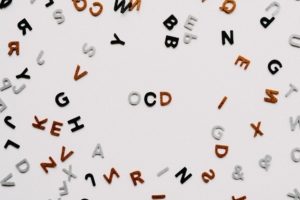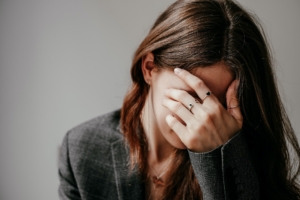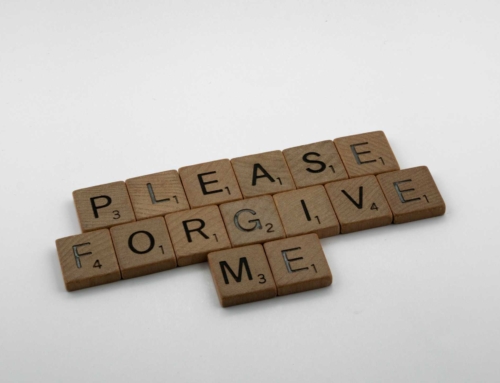 How does a person define OCD? You are probably already aware that this is an acronym that stands for Obsessive-Compulsive Disorder. Experts estimate that one in forty adults, and one out of every hundred children, have OCD in the United States. In this article, we will set out to explain OCD.
How does a person define OCD? You are probably already aware that this is an acronym that stands for Obsessive-Compulsive Disorder. Experts estimate that one in forty adults, and one out of every hundred children, have OCD in the United States. In this article, we will set out to explain OCD.
To define OCD, you can look at the information that therapists use to make a diagnosis. People with OCD have recurrent and uncontrolled thoughts and behaviors in addition to strong urges to repeat them. At times, many people need to check items off a list or double-check that a door is locked. However, people with OCD have obsessions about these kinds of things and suffer from extreme anxiety until they are completed.
People with OCD normally perform rituals for at least one hour each day. Their rituals will provide a brief sense of relief from their anxiety. When another incident triggers them, the cycle repeats. The sooner that a person with OCD gets help for their symptoms, the sooner their relationships and daily schedules can improve.
Types of OCD.
People with OCD have different manifestations of the problem. There are two main types of OCD: fear-driven OCD and nervous-system-driven OCD. Both types tend to repeat behaviors over and over, sometimes without being consciously aware of the behaviors.
People with fear-driven OCD perform rituals to control their anxiety. They have a false belief that if they fail to perform the ritual, what they fear will come true. For example, a person may fear getting sick. To deal with this fear of sickness, a person may perform an elaborate ritual of deep cleaning each day to try to remove all viruses and bacteria from their environment. They fear that unless they complete this ritual, they will certainly get sick.
Fear-driven OCD causes sufferers to have recurring feelings of doubt and fear. They may also have bizarre thoughts about harming themselves or others. We all deal with disturbing thoughts now and then.
But fear-driven OCD causes sufferers to replay disturbing thoughts because they fear that the thoughts will become reality. They may use rituals in their minds, such as repeating words or counting numbers, to temporarily distract from the distressing thoughts and reduce their stress.
 People with nervous-system-driven OCD will perform rituals without a particular reason, other than it feels uncomfortable or unnatural not to perform them. Their feelings about this compulsion are so strong that they believe something bad could happen if they don’t perform the rituals.
People with nervous-system-driven OCD will perform rituals without a particular reason, other than it feels uncomfortable or unnatural not to perform them. Their feelings about this compulsion are so strong that they believe something bad could happen if they don’t perform the rituals.
How to define OCD: common signs.
OCD has markers of obsessions (thoughts) and compulsions (behaviors). OCD triggers repeat thoughts and behaviors many times per day, whether the type of OCD is nervous-system-driven or fear-driven. Here are signs of OCD that you may see in yourself or others:
- Obsessing over viruses, bacteria, and contamination.
- Obsessing over losing or misplacing items.
- Thinking taboo thoughts about sex, religion, or other people.
- Experiencing a strong drive to have everything in perfect order.
- Excessive cleaning of one’s environment or body.
- Keeping or hoarding unneeded objects.
- Checking on things or counting things repeatedly.
- Experiencing a constant need for reassurance.
- Fearing harm toward oneself or loved ones.
A person with OCD attempts to relieve their feelings of distress when they experience these thoughts or behaviors. Unfortunately, the cycles keep repeating because their fears or impulses from their nervous system reoccur. The person with OCD doesn’t ever completely relax because the cycle keeps repeating.
Symptoms of Obsessive-Compulsive Disorder.
People with OCD often feel weighed down because their rituals are draining and time-consuming. Some OCD sufferers’ rituals can take over their schedules. They might get upset or frustrated if their rituals become disrupted, and they can get stuck in the details or the routines of their rituals.
More symptoms of OCD include compulsive behaviors, recurrent and unwanted thoughts, and tic disorders. Tic disorders can include sniffing, grunting, clearing their throat, jerking, blinking, shrugging, grimacing, or other repetitive sounds and motions.
Common causes.
 Scientists have found that OCD can be influenced by genetics, although they don’t know why some family members experience OCD while others do not, although epigenetics, a topic we don’t have room to go into today, could be influential.
Scientists have found that OCD can be influenced by genetics, although they don’t know why some family members experience OCD while others do not, although epigenetics, a topic we don’t have room to go into today, could be influential.
However, if a first-degree relative was diagnosed with OCD as a child or teenager, the risk of OCD is higher in other family members. The first signs of OCD usually show up during adolescence, and the onset is often earlier in boys than it is in girls.
Researchers are studying the frontal cortex of the brain to learn about possible connections between OCD and abnormalities in the brain. The frontal cortex, which is involved in executive function and impulse control, plays a role in obsessive and compulsive behaviors, so scientists are studying it in order to create treatments for OCD patients.
There is a higher risk of OCD among people who have post-traumatic stress disorder or who have been physically, emotionally, or sexually abused. Some children develop a certain type of OCD after streptococcal infections, which is called Pediatric Autoimmune Neuropsychiatric Disorders Associated with Streptococcal infections (PANDAS).
Treatment options.
The first step toward getting treatment for OCD is to reach out to a qualified counselor. Your counselor will listen to a description of your symptoms, inquire about your history of the problem, then form a diagnosis. Common treatments involve Cognitive Behavioral Therapy, medications, or both.
Cognitive Behavioral Therapy.
Cognitive Behavioral Therapy (CBT) retrains your brain to think in different ways, which will, as a result, affect your behavior. A person with OCD can use CBT to form different responses to obsessions and compulsions.
A specific type of CBT, known as Exposure and Response Prevention, exposes you to your fears or obsessions slowly over time. During this type of therapy, your counselor helps you to form healthy habits to handle anxiety triggers. Your counselor may also use Habit Reversal Training to help you put a stop to compulsive behaviors. For children with CBT, the counselor will help the family build strategies for stress management at both home and school.
If your OCD is linked to other disorders like depression, anxiety, or body dysmorphic disorder, your counselor will use a holistic treatment plan. You will address the issues as you are able to manage them and celebrate each small step of progress. After using CBT, many patients feel a greater sense of control over their obsessive-compulsive thoughts and behaviors.
Medication.
 Medication is another good way to treat OCD. Antidepressants that assist in controlling serotonin re-uptake, known as SSRIs or SRIs, are commonly prescribed for depression but they can also help patients who have OCD.
Medication is another good way to treat OCD. Antidepressants that assist in controlling serotonin re-uptake, known as SSRIs or SRIs, are commonly prescribed for depression but they can also help patients who have OCD.
It’s important to note these types of medications can sometimes take up to twelve weeks to start working and may have a range of side effects such as headaches, nausea, or disturbed sleep (many of which go away after your body adjusts to the medication).
Many people with OCD who take antidepressants learn to manage the side effects, which can decrease over time. It’s very important to speak with your doctor or counselor before you stop your dosage to avoid the side effects. By stopping the medication without medical consent, your OCD symptoms may worsen, and you could experience other serious side effects.
Christian counseling for OCD.
Treatment for OCD is best viewed as a long game. You may not see improvement in your symptoms for several weeks, but continuing therapy and/or taking medication during that period is vital.
Though there is no cure for OCD, a Christian counselor can help you form practical strategies for dealing with your symptoms so you can live a healthier, happier life. There are many ways you can manage your stress levels and improve the quality of your relationships if you have OCD. Reach out to a Christian counselor today who can help you with this disorder.
Photos:
“OCD”, Courtesy of Annie Spratt, Unsplash.com, CC0 License; “Grief”, Courtesy of Valeriia Miller, Unsplash.com, Unsplash+ License; “Cleaning Supplies”, Courtesy of Daiga Ellaby, Unsplash.com, CC0 License; “Anxious”, Courtesy of Priscilla Du Preez, Unsplash.com, CC0 License









